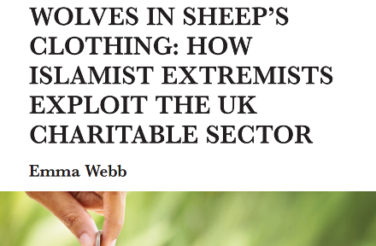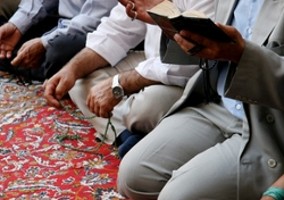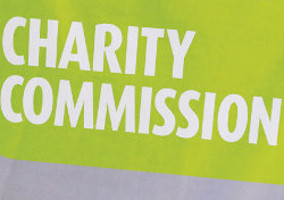Not enough is being done by the government or the Charity Commission to prevent Islamist extremists exploiting charities, according to report from the Henry Jackson Society.
But one of the charities highlighted has said the report is full of “inaccuracies, exaggerations and untruths”.
The think tank published its report, Wolves in Sheep’s Clothing: How Islamist Extremists Exploit the UK Charitable Sector, warning that not enough is being done to prevent terrorist abuse of charities.
HJS is a registered charity and think tank which says it “fights for the principles and alliances which keep societies free” and has a focus on tackling extremism. It has previously faced criticism for holding neo-conservative views but positions itself as non-partisan.
It claims that charities with current or past links to extremists have benefited from over £6m in Gift Aid in the last year and called for tougher measures to prevent abuse.
The report recommends that the Commission make more extensive use of its powers to remove trustees and be more proactive and says the government should give the regulator more resources so it can do so.
It also recommends that Ofcom address channels providing a platform and that online giving platforms should do more to stop terrorists from fundraising with them.
Emma Webb, who wrote the report and is a research fellow at the Centre for the Response to Radicalisation and Terrorism at the Henry Jackson Society, said:“At a time of controversy over the size and capabilities of Britain’s armed forces and the pressure faced by public services, it is outrageous that millions of pounds of taxpayers’ money is unwittingly being handed over to extremists whose only goal is to damage our society. The £6 million figure is a minimum, with the evidence suggesting that this is only the tip of the iceberg.
“This report illustrates how these charities operate like a cartel, with extremist speakers involved in multiple organisations, presenting themselves as the voice of ‘true’ Islam and squeezing out moderate voices. The charities give them a platform, disseminating their literature and giving them credibility and access.
“Charitable status is not a right, it is a privilege. The public correctly expect that charities should work for society, not against it.
“Action is needed now if we are to stop this network of Islamist extremists from continuing to use charities and taxpayers’ money to fund the spread of divisive, illiberal and intolerant views within our own communities.”
Report contains 'inaccuracies, exaggerations and untruths'
One of the charities criticised in the report is Helping Households Under Great Stress, which the HSJ claims has “extreme and illiberal individuals are involved at all levels of the organisation, from trustees to supporters, speakers and beneficiaries”.
It has published a ten-point response on its website and said that the claims made by the HJS are “too voluminous to address” in full.
HHUGS said: “Most open-minded members of society however view HHUGS as carrying out critical pastoral work supporting vulnerable families of prisoners similar to other charities such as Family Lives, Partners of Prisoners and Affect.”
It described its relationship with the Charity Commission as “healthy” and said it has never been investigated by the regulator.
"HHUGS has held several meetings with the Commission in the past to discuss the nature of its work, its policies and procedures including its risk assessment policy for all speakers," the charity said. "The Commission has been satisfied that HHUGS continues to comply with its legal and regulatory duties.”
HHUGS said its trustees were seeking legal advice because “attempts to smear them are nothing short of vindictive”.
It added that: “The HJS report is filled with inaccuracies, exaggerations and untruths. It lacks academic standing and is more akin to political propaganda. HHUGS lauds the majority of the mainstream media for choosing not to publicise the report.”
The report was covered in the Sunday Times.
HHUGS described the report as “an anti-Muslim trope” that it said “implies a plot, nefarious agenda and casts aspersions on Muslim charities, intentions and loyalties without evidence. While HHUGS appreciates the need for free speech in a democratic society, such views as expressed by the HJS in its report seek to divide British society through an “us and them” framework”.
Charity Commission response
The Commission said that tackling terrorist abuse of charities was one of its key priorities.
The regulator has used its enforcement powers over 1,000 times last year, and has used its new powers 80 times, as of December 2017. It has also publisehd a counter terrorism strategy.
In 2016/17 terrorist or extremist abuse featured in 9 new inquiries, and 19 reports of a serious incident – the majority related to looting or theft of goods and resources by terrorist groups and allegations made against employees, agents or employees of partners being involved in terrorist activity.
A spokeswoman said: “Tackling the abuse of charities for terrorist and extremist related purposes is one of the Commission's three priority risk areas. Charities exist to make the world a better place and we have made clear that abuse of this kind is not acceptable and damages public trust in charity.
“We work closely with the police, other law enforcement agencies and government departments in this area, to identify, prioritise and robustly tackle concerns.
“For obvious reasons we cannot comment further on any current or pending operational actions and priorities on individual charities where such abuse is or is alleged to have occurred. However, we will examine and assess the allegations and any supporting evidence made in the report about individual charities, and take any appropriate action in accordance with our published risk framework.”
Related articles












